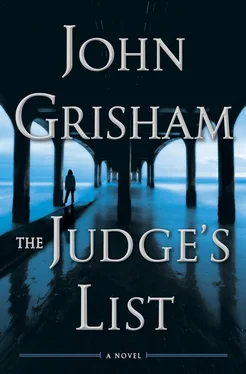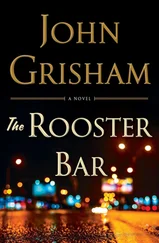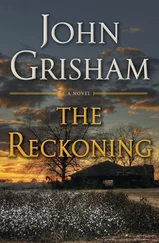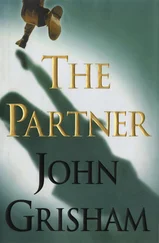“Yes sir,” Faldo shot back. He did not need to be told how to handle his job.
He vaguely recalled that Bannick had been there before, years earlier. It was unusual for a circuit court judge, or any other judge for that matter, to stop by the evidence warehouse. Faldo’s visitors were almost exclusively cops working on cases, bringing in evidence to be stored until trial, or digging through old files. But then Faldo had learned decades earlier that the treasure trove of old clues he guarded might attract just about anyone. He had logged in private investigators, reporters, novelists, desperate families looking for shreds of evidence, even a medium and at least one witch.
At four thirty, Judge Bannick appeared with a pleasant smile and said hello. He seemed genuinely pleased to meet the sergeant and asked about his distinguished career on the force. Always the politician, he thanked Faldo for his service and asked him to call if he ever needed anything.
At issue was an old file from way back, the year was 2001. A case in city court, a dismissal, a trivial matter that was of no consequence to anyone but a retired friend down in Tampa who needed a favor. And so the fiction went.
As they withdrew into the bowels of the warehouse, chatting about football, Faldo seemed to remember something about the file. He found April, May, then June, and pulled out an entire drawer. “Defendant’s name is Verno,” Bannick said as he watched Faldo thumb through the row of files.
“Here it is,” Faldo said proudly as he removed it and handed it over.
Bannick adjusted his reading glasses and asked, “Anybody looked at this lately?”
Now he remembered. “Yes, sir. Guy came in a few weeks back, oddly enough. I copied his driver’s license. Should be right there.”
Bannick pulled out a sheet of paper and looked at the face of one Jeff Dunlap of Conyers, Georgia. “What did he want?”
“Don’t know, other than the file. I copied it for him, a dollar a pop. Four bucks as I recall.” And he further recalled that Dunlap dropped a $5 bill on the counter because Faldo used only credit cards, but decided not to mention this. It was a small theft, just a bit of graft by a veteran police officer who had always been grossly underpaid.
Bannick studied the pages, his reading glasses balanced intelligently at the very tip of his nose. “Who redacted the name of the complaining party?” he asked, not really expecting Faldo to have an answer.
Well, it was probably you, sir. According to my logbook up front, only two people have had any interest in that file in the past thirteen years. You, twenty-three months ago, and now this Dunlap fellow. But Faldo read the situation correctly and wanted no trouble. “I have no idea, sir.”
“Okay. Can you run me a copy of this guy’s driver’s license?”
“Yes, sir.”
Judge Bannick drove away in his Ford SUV, nothing flashy, nothing to attract attention. Never.
A private detective from Georgia traveled to Pensacola to dig through a useless old police file, some thirteen years after the case was closed. In doing so he found the scant records of the arrest and trial of Lanny Verno, may he rest in peace. Odd and hard to explain, other than the obvious explanation that someone was digging through his past.
Bannick’s mind had been spinning for twenty-four hours, and he was eating ibuprofen to fight the headaches. It was crucial to think clearly, smartly, slowly, and to see around corners, but many images were blurred. He drove to the north side of Pensacola and stopped at a shopping center, one of two he owned. There was a Kroger on one end and a cinema fourplex at the other, and in between there were eight smaller businesses, all current with their rents. He parked near a popular gym, one that he used almost every day, and walked along a covered sidewalk like any other shopper. Between the gym and a yoga studio he turned in to a wide covered alley and stopped at an unmarked door where he scanned a key card and stared into the facial scanner. The door clicked and he quickly went inside. He turned off the alarms as the door closed behind him.
It was his other chamber, his sanctum, his refuge, his cave. No windows, only one entrance, heavily alarmed, and watched around the clock by hidden cameras. There was no record of its existence, no business permits, no utility bills, no access by anyone other than him. Electricity, water, sewer, Internet, and cable were siphoned from the gym, on the other side of a thick wall, and the rent was adjusted accordingly by a handshake deal with the lessee. It was technically in violation of a few petty ordinances and regulations, and as a judge he didn’t like the fact that he was cheating a little. But no one would ever know. The privacy afforded by his other chamber far outweighed any nagging feelings of guilt.
He lived ten miles away in the town of Cullman, in a fine home with the usual busy man’s office, one that could be easily raided by men with warrants. And his professional office was his rather somber chambers on the second floor of the Chavez County Courthouse, a space owned by the taxpayers and, though not exactly open to the public, clearly susceptible to being searched.
Let them come. Let them seize all the files and computers in his home and his official chambers, and they would not find one shred of evidence against him. They could stalk him online, dig through his computers and judicial data server files, trace every email he’d ever sent from those computers, and they would find nothing.
He had lived most of his adult life in fear of arrest, of warrants, of detectives, of getting caught. The fear had so thoroughly consumed him for so long that his daily routines included all manner of cautionary moves. And he remained, so far, ahead of the bloodhounds.
The fear of getting caught was not driven by the fear of paying the price. Rather, it was the fear of having to stop.
His passion for technology, security, surveillance, off-the-wall science, even espionage, was rooted in a movie he had long since forgotten the name of. He had watched it as a frightened and damaged thirteen-year-old boy, alone in the basement one night after his parents had gone to bed. The protagonist was a scrawny misfit of a kid who was the favorite target of neighborhood bullies. Instead of lifting weights and learning karate, he delved into the world of weird science, spycraft, weaponry, ballistics, even chemical warfare. He bought the first computer in town and taught himself how to program it. In due course, he exacted revenge on the bullies and rode off into the sunset. It wasn’t much of a movie, but it inspired young Ross Bannick to embrace science and technology. He begged his parents for an Apple II computer for Christmas, and birthday too. Plus, he tossed in $450 of his own savings. Throughout high school and college, every paycheck and every spare dollar went for the latest upgrade, the latest gadget. In his younger days, he had secretly tapped phones, filmed frat brothers having sex with their girlfriends, recorded lectures that were off-limits, disabled surveillance cameras, picked locks, entered secured offices, and taken a hundred other stupid chances that he never regretted. He had never been caught, not even close.
The arrival of the Internet presented him with endless possibilities.
He took off his tie and jacket and tossed them on a leather sofa, a place he often slept. He had clothes in a closet in the rear, a small fridge with sodas and fruit drinks. There was a café a hundred yards away near the cinema and he often ate there, alone, when working late. He walked to a thick metal door, punched a code, waited for the lead bolts to release, then opened it and walked deeper inside his secret world. The Vault, as he proudly called it but only when talking to himself, was a fifteen-foot-square office that was soundproof, fireproof, waterproof, everything-proof. No one had ever seen it and no one ever would. There was a desk in the center with two thirty-inch computer screens. One wall was covered with IP cameras showing his home, office, courthouse, and the building he was in. On one wall there was a sixty-inch plasma screen television. The other two walls were bare — no ego puffery, no awards, commendations, diplomas. All that junk was preserved on walls that could be seen. Indeed, there was nothing anywhere in his other chamber that would indicate who owned the place. The name of Ross Bannick was nowhere to be found.
Читать дальше












